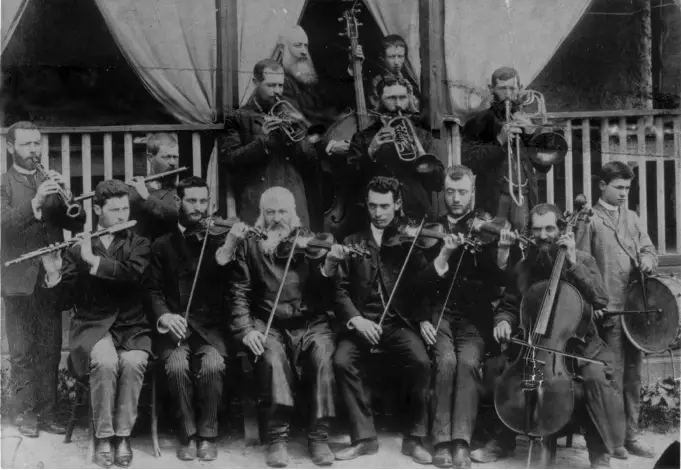
Date
Time
Location
Szpilman, Bajgelman, Barsh: The Legacy of a Polish-Jewish Klezmer Family, with Joel Rubin
Lecture #59 in Joshua Horowitz’s series, The Promiscuous World of Jewish Music
Szpilman, Bajgelman, Barsh: The Legacy of a Polish-Jewish Klezmer Family, with Joel Rubin
Monday, September 13, 11am California / 2pm New York / 7pm London / 8pm Paris / 9pm Tel Aviv. Please confirm local time.
Length: 1 – 2 hours
Zoom Meeting ID: 967 8901 9038
Password: 156230
Although there is a Zoom limit of 100 participants, there’s always plenty of room. You do not need to register; simply use the sign-in info above.There is a Zoom limit of 100 participants.
Donations to Josh Horowitz are accepted and appreciated, but not required.
The Szpilmans, Baigelmans and Barshes are an extended family of professional Jewish instrumentalists from Ostrowiec (Opatów District), Poland, active since at least the mid-19th century, from the brothers Zile and Srul-Layb Szpilman in 19th-century Ostrowiec to Yiddish theater composer Dawid Beigelman in early 20th century Lodz, to contemporary funk musician Toby Kasavan (Fingers DelRay, New York) and jazz/blues singer Taryn Szpilman (Rio). During the interwar years and in the aftermath of the Holocaust, the family spread out to Lodz, Toronto, Rio de Janiero, and New York City, among other places. There they played important roles as performers and composers in genres as diverse as instrumental klezmer, Polish popular song, jazz, chamber and symphonic music, the Yiddish theater and vaudeville, Brazilian dance music, funk and blues. The most famous member was perhaps Władysław Szpilman (1911-2000), whose autobiography formed the basis of Roman Polanski’s Oscar-winning film, The Pianist.
Ethnomusicologist and clarinetist Joel Rubin (University of Bern) will trace this family through several generations, throwing light on the important contribution of the klezmorim of Congress Poland to Jewish and non-Jewish musical culture. Based on ethnographic interviews with surviving members of the Szpilman, Barsh and Baigelman families, and contemporary accounts of klezmer musicians, the talk will show how a single family navigated the waters of musical and cultural change and, in so doing, impacted musical life on three continents.
